My name is Kevin and I am 32 years old. I am in love with languages and studying linguistics as a master's degree and graduated in general linguistics and Dutch sciences. Most of the time I am probably infiltrating tumblr by mentioning Low Saxon anywhere possible.
Don't wanna be here? Send us removal request.
Text
Just stop making it look like vegans are ridiculous about honey. That stuff is easily researchable.
Vegans do not mainly or necessarily avoid honey because it kills bees, there are also many other problems accompanying it. And yes, industrial honey production kills bees by the thousands. Only mentioning beekeepers from your neighbourhood and how nice they treat the bees won’t make a point. In the industry, from which over more 90% of the world’s honey comes from, they hardly care about how many bees die in the process of getting the honey, either when they extract the combs from the hives, when they transport it (sometimes over several climate zones, with the bee hives still attached to the hives, or squeeze and process the combs (not by the little machines in the picture above, but by bigger industrial machines). It is not “consent” when you go into hives or destroy them with machines and grind the combs and not caring for how many bees die by that.
But furthermore, the whole big industry is the problem, AND little neighbourhood beekeepers, too. In the industry, most diseases are treated with massive amounts of antibiotics and other remedies, which causes superbugs to evolve and they spread on local wild bee hives and they will die. Honey bees nowadays became more vulnerable to diseases. It is one of the main contributors to the massive bee dying and colony colapse disorder in the world, badly treated diseases by the industry. But also local beekeepers have often not enough knowledge about the right treatment of them to make them not contributing to superbugs or make them spreading. (And when they notice that, they mostly kill the whole hive, because they don’t know how to treat it otherwise. So much about not harming bees, there are way too many beekeepers out there already, always killing the hives when there is a disease they are overwhelmed with treating. That is also against what vegans would want.)
And as a last bigger point I wanted to add: Local wild bees are the biggest contributor to pollination, they usually make up to 80% of it. But with so many honey bees being present by the industry and fancy beekeepers, the honey bees (not as much as able to pollinate as local endemic wild bees, especially since honey bees aren’t even endemic to the most regions they are kept in) they replace the wild bees and take away their grounds and food sources to survive. Which is another reason why the number of wild bees is declining so much.
Another big factor of the massive bee dying is also pesticides by farmers, of course. That is not a real part of the honey industry, of course. But that is not the only reason, and that should be kept in mind. There is not so much fanciness with local beekeeping. Just as the big industry for honey which make up most of the world’s honey is not simply “taking the honey and replacing it”, that is as much a fairy tell as the happy milk cow on the meadow is, because the extraction is much more brutal and less caring about the welfare of the individual bees.
Simply not consuming honey makes it easier for the recovery of wild bees, it will lessen the bad treatment of diseases so that superbugs will not be rampant and it will simply not contribute to the deaths of bees. Point.
Simply watch “More than Honey” about how the industry of honey is one of the main contributor in the US to the colony colapse disorder, and explaining all the above. The documentary is nice and it is not really about pointing with the finger at the bad people eating honey, so it is something for everybody.
vegans make peace with honey
no shut up do it
359K notes
·
View notes
Photo
Fahrspurende und Fahrspurränder*innen machen halt alles kaputt...

garden path Wörter
2K notes
·
View notes
Text
Fact #1 is just wrong. It’s been pretty clear since quite some time that the annual flu is less infectious and less deadly than the Corona virus. And newer studies even changed the statement from “not comparable to the Spanish Flu” to “comparable to the Spanish Flu” from 1918, where roughly 20-50 million people died, of alltogether maybe 500 million infected people. The world population back then was 1.8 billion, nowadays we have 7.8 billion, just imagine the impact it could have! We now have 10 million infected people and 500,000 people died. The easiest, yet of course unscientific, calculation is: 50 x 10 million (to reach the 500 million infected from back then) means we have to calculate 50 x 500,000 dead people, which makes 25,000,000 dead people, if the same amount of people would be infected as with the Spanish Flu. That is well withing the estimates of 20-50 million deaths from back then. So, they are pretty much comparable and strikingly similar in infection-fatality-ratio. So, stop repeating the denial phrase “It’s just a flu.” and please try your best and follow all the hygiene measurements, including social distancing and all. The pandemic is not over, in fact, it is skyrocketing at the moment, it has never been this worse and there is no sign that it is slowing down. Our only hope is a vaccine, our only tool to keep the death toll low until then is to stick to the safety measurements. And it has been very long months, and I still wonder why these things have to be said... So, please don’t share this picture without proper explanations.
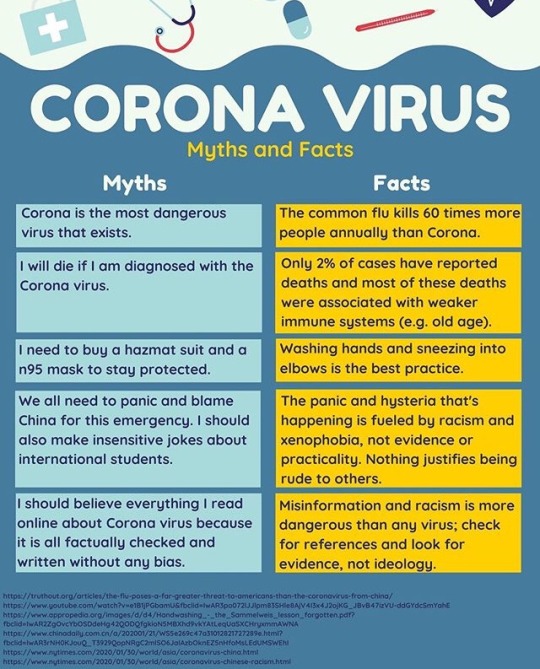
Spread the News THE TRUE INFORMATION
80K notes
·
View notes
Text
De Sassenvlagg - de Witt-Rode
Wi hebbt en Vlagg för dat Plattdüütsche opstellt - de ’Witt-Rode’.
“En ne’e Vlagg stellt sik för. Wat de neddersassiske Spraak feelt, nich as Land man as Tungenslag, is en Symbool as Repräsentatschoon. Mit düssen Versöök vun en hanseaatsche Dinkhülp schall de Söök nee ansteken warrn.”
http://www.sassenvlagg.org/
Dat Bild is vree vervöögbaar ünner Creative Commons-Lizens. https://commons.wikimedia.org/wiki/File:Sassenvlagg.png

7 notes
·
View notes
Photo
Writing your thesis in Low Saxon about the vowel system of West Greenlandic and expect nothing from the field except for head-shaking by the academic discourse.

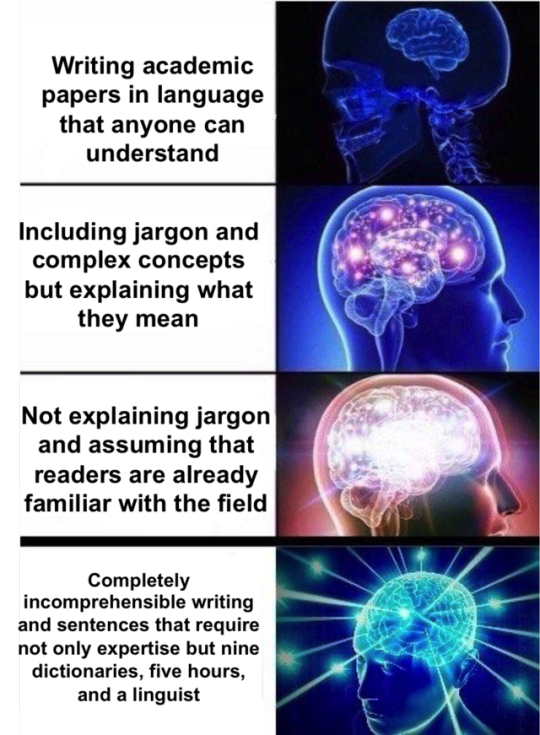
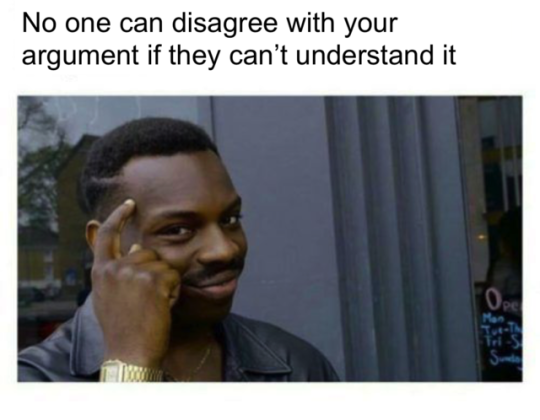
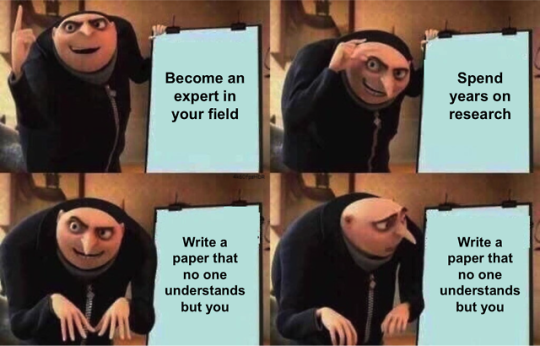

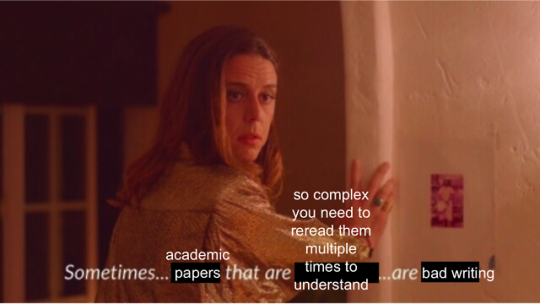
some memes I made to express my current frustrations with academia feel free to add your own
262K notes
·
View notes
Text
Chinook Jargon Duolingo
There is a request to Duolingo to add a course for Chinook Jargon, a lingua franca pidgin/creole spoken in the Pacific Northwest. In order to help this endeavour, please upvote the following post in the Duolingo forum and feel free to comment on it or reblog this announcement. Hayu masi!
https://forum.duolingo.com/comment/34963484
94 notes
·
View notes
Photo
The official German hymn does not start by “Deutschland”. The official German hymn starts with the third verse, which starts by “Unity”. Singing the first verse that starts by “Deutschland” (Germany) is not illegal, but singing it can be easily classified as being neonazi.
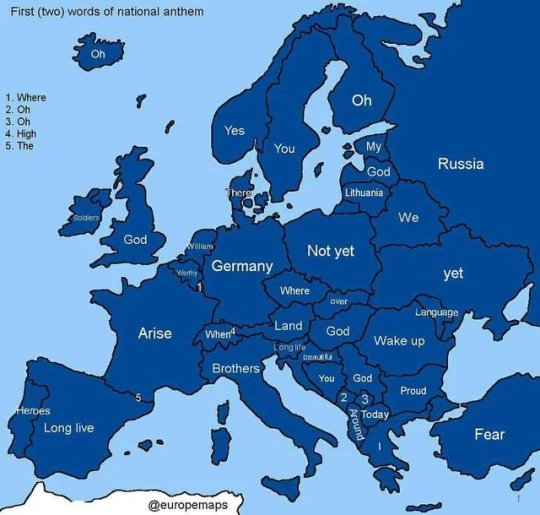
The beginning of each European anthem.
49K notes
·
View notes
Text
New Greenlandic Grammar resource

If you are interested in Greenlandic grammar (or Inuit / Eskimo-Aleut grammar more broadly) then head down to oka.dk and read “An Introduction to West Greenlandic” by Stian Lybech. It’s free to download!
Stian is an active participant at the Inuit-Yupik-Unangan Discord server, where there is occasional lively discussion on all things Eskimo-Aleut. He is a Dane who has spent a good amount of time in Greenland and who has become fluent in Greenlandic, and has taught other ex-pats the language in evening classes.
His new work is a work-in-progress, and the first available chapters focus on phonology and word-formation. It has a lively, slightly irreverent, but very readable style.
Please note that it’s not a learners’ grammar as such, but is much more of an attempt to describe the underlying orderliness of the language in a limited number of rules (as done by Per Langgård in some of his grammars such as Forsøg til en forbedret grønlandsk pædagogisk Grammatica), rather than simply setting out in long tabular form the bewildering number of noun and verb endings that are possible in Greenlandic when applying eight noun cases, nine verbal moods, possessive forms and combined subject+object forms (textbooks such as Bjørnum’s Grønlandsk Grammatik set these out at length and show over 1500 separate forms, a daunting sight for a learner).
Similarly, apparent irregularities in morpheme joining and plural formation can be shown to have a greater level of regularity once a few specific rules are learned. A lot of these rules become clearer when looking at the historical forms of the words, as either appearing in the older Kleinschmidt orthography or when looking at the other (westward) dialects in the broader Inuit language continuum, which have generally undergone less sound assimilation at morpheme boundaries.
The “walri” (aarfit) would be delighted if you would take a look.
73 notes
·
View notes
Text
Endangered Languages Challenge - Master list 1

Thank you for everyone who participated, especially the authors!
I am delighted to see that so many of you liked and reblogged the entries.
Here’s a list of all the contributions I am currently aware of:
by @turtleisland-languages
Oneida
by @dystonia-linguist
Mansi
Mising
by @helleniclanguageboy
Cypriot Arabic
Cypriot Arabic - Sanna
by @languageoficeandfire
Carib
Aleut
by @perkeleet-paassani
Chuvash
Manchu
Komo
by @siancore
Paakantyi Palku
Ngiyampaa
Gamilaraay
by @practicingtheliberalarts
Catawba 1
Catawba 2
Catawba 3
Catawba 4
Catawba 5
Catawba 6
by @phonaesthemes
Łingít
Udi
Malecite & Mi’kmaq
Canadian Gaelic
Tłıchǫ Yatıì
Tiéfo
by @injerabae
Ongota
Kujargé
Argobba
Sirzakwai
Láàl
Aasáx
by @languagesandshootingstars
Ainu
Livonian
Yukaghir
Yeyi
Chipewyan
Tehuelche
Palawa Kani
by @linguisten
Dyirbal
Resígaro
Livonian
Yurok
Uma’ Lung
Takuu
Yaghan
135 notes
·
View notes
Text
New ‘Low Saxon’ discord server
I have created a new server for the Low Saxon language. Low Saxon is closely related to English, it was once the Baltic lingua franca of the Hanseatic League, but now it has become very endangered. We want to revive it, and this server is a perfect place to get in touch with the language, spoken in the Netherlands, Germany and Denmark and by the Russian-Mennonites and Pomeranians all around the globe. If you are a native speaker, learner or just interested, hop on board. We also have many general Germanic channels. Bedankt! :))
https://discord.gg/mmVENr4
#discord#low saxon#low german#plattdeutsch#plattdüütsch#platt#neddersassisk#nedersaksies#nedersaksisch#niederdeutsch#nedderdüütsch#server#neddersass'sch#niedersächsisch#sassisch#sassisk#sächsisch#saxon#language community#language#linguistics#germanic#westgermanic#ingvaeonic#northsea germanic#russian mennonite#plautdietsch#pomerano#language endangerment#revival
26 notes
·
View notes
Text
Time to reblog the updated version of my insights into LGBTQ* terms of Low Saxon. I have devised a Low Saxon Pride flag based on the Low Saxon flag (Sassenvlagg) I have made years ago. Here you have both of them side by side. Feel free to share it!


LGBTQ+ vocabulary - Low Saxon
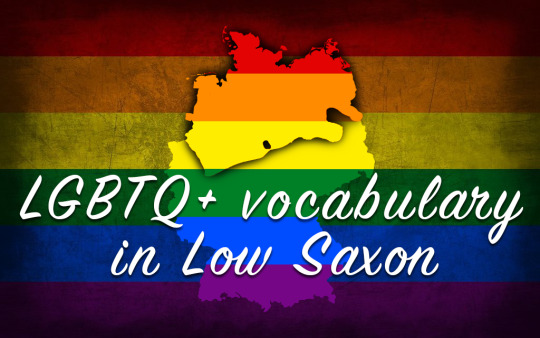
Now, it is official: Germany voted with 393 Yes and 226 No votes in favor of marriage equality, which we call in German “Ehe für alle” (marriage for all), and the Bundespräsident signed it now. This is a historic moment for Germany and marks the point where we move forward from just tolerance to more acceptance. Hopefully, this will have effects on the German people to be more accepting of other sexual and gender identities and life forms.
In order to do so, here is some vocabulary regarding LGBTQQIP2SAA topics to spread more awareness in Low Saxon, i. e. Low German, the regional language spoken in Northern Germany and the Netherlands. Feel free to add things, to give feedback or to correct me. Low Saxon speakers haven’t been really active in creating new terms for LGBT+ topics, so this is some kind of language development, too, since many of the terms will be coined right now and haven’t been used (yet). So, this is mostly a draft for you and us to work on. It can also be helping to remove discrimination and prejudices since most Low Saxon speakers are living in rural areas where LGBTQ+ topics are mostly seen as something exotic and people are afraid of stranger things and thus still more conservative and homo-/transphobic.
Attributes
(After the comma, the adjective endings are given.) homosexual - homoseksuell, ~e, ~en gay - swuul, swule, swulen (Side note: The German word “schwul” for “gay” derived from Low Saxon. In Middle Low Saxon the word “swul” meant “sweltry” and the word was borrowed by German and then changed into “schwül” as analogy to “kühl” (cool) which has an umlaut, too, for weather terms. The word “schwul” without the umlaut was then used for “gay” because, in German, gays were associated with being warm, hence: warmer Bruder - a gay companion, lit. warm brother.) lesbian - lesbsch, ~e, ~en bisexual - biseksuell, ~e, ~en transsexual - transseksuell, ~e, ~en asexual - aseksuell, ~e, ~en aromantic - aromantsch, ~e, ~en intersexual - interseksuell, ~e, ~en (some might say: innerseksuell) pansexual - panseksuell, ~e, ~en queer - queer, ~e, ~en; dweer, dwere, dweren; dwars, ~e, ~en (Side note: The English word “queer” actually comes directly from the Brunswick dialect of Middle Low Saxon, meaning “oblique, off-centered”.) LGBT - LGBT or in Low Saxon LSBT same sex - liekslechtlich, ~e, ~en out - “he is out” - “he is out” [What a cognincidence!] (”out” meaning in German “geoutet”; there is no “ge-” in Low Saxon and no “-et” after “-t”) coming out - sik outen, “he came out” - “he hettsik out” -gender (adj.) - (ge)slechtlich, ~e, ~en (many would put ge- in front of it) cisgender (adj.) - cisgender, no adjective endings; cisslechtlich, ~e, ~en genderqueer - slechtsdweer, ~dwere, ~dweren; genderqueer, no endings third-gender - drüddslechtlich, ~e, ~en genderfluid - slechtsvlödig, ~e, ~en; genderfluid, no endings agender/neutrois - unslechtlich, ~e, ~en; agender, no endings androgyne - androgyyn, ~gyne, ~gynen bigender - tweeslechtlich, ~e, ~en; bigender, no endings Female to Male / FTM - Vrouw to Mann / VTM; (Se to He) Male to Female / MTF - Mann to Vrouw / MTV; (He to Se) gender nonconforming - slechtsunstimmig, ~e, ~en; nichslechtsövereenstimmen, no adjective endings gender questioning - slechtsunseker, ~e, ~en; slechts-in-Vraag-stellen, no adjective endings (probably gets paraphrased as “S/he stellteer/sien Slecht in Vraag,”) non-binary - nichbinäär, ~e, ~en pangender - panslechtlich, ~e, ~en; allslechtlich, ~e, ~en Two-Spirit - een Two-Spirit ween; “tweegeestig”, ~e, ~en monogamous - monogaam, ~game, ~gamen polygamous - polygaam, ~game, ~gamen polyamorous - polyamoröös, ~röse, ~rösen; veelleven, ~e, ~en nonconformist - nichkunfoormistsch, ~e, ~en
Nouns
(After the noun, the genus and the plural forms/endings are given.) boyfriend - de Vründ, Vrünn girlfriend - de Vrünnin, Vrünninnen (When you are referring to your own boy- or girlfriend it is mostly enough to just use Vründ or Vrünnin with the possessive pronoun “mien” in front of it. If you want to put emphasis on it or want to distinguish it from a friend you could use the adjective “vast” with it, meaning “tight or close” friend implicating the boy- or girlfriend: Ik ga mit mien Vrünnin na’t Kino. - Een Vrünnin or dien vaste Vrünnin? - Nee, mien vaste Vrünnin. - I am going to the cinema with my (girl)friend. - A friend or your girlfriend? - No, my girlfriend.) relationship - de “Beziehung” f, ~en (Low Saxon often uses the German word.); de Partnerschapp f, -en triangle relationship - de Dreeecksbeziehung/-partnerschapp f, ~en (sexual) orientation - de (seksuelle) Orienteren f sexuality - de Seksualiteet f, ~teten sex & gender - dat Slecht n, ~er (In Low Saxon there is no strict distinction made between sex and gender. If you want to, you can use dat Gender for gender and dat Slecht for sex.) gender identity - de Slechtsidentiteet f, ~teten rainbow - de Regenbagen f, ~s cross-dresser - de Transvestietm, ~en; de Transvestietsche f, ~n transgender person - en Transseksuellen m, ~en; en Transseksuelle f, ~n polyamory - Polyamoreef.; Veelleveree f. cis-normativity - de cis-Noormativiteet f. phobia - de Fobie f, ~n (You can put Homo-, Bi-, Trans-, Ace- etc. in front of it.)
Gender-neutral speech
This is a little bit harder in Low Saxon than in English because not only do our pronouns have a genus, but all our nouns have one out of three genera and thus the adjective and article declination, too. A big problem we often face is the generic masculine for person terms like professions where it is usual to take the male form but subsume the female members under it, too. If you don’t give context most people will think of men only hearing a word like “de Studenten” for “the students” even it would also include women (which would be “de Studentschen”). Most of the strategies in Low Saxon will be the same as in German, in this case, for example, to use a double form in speaking “de Studentschen un Studenten” or in writing “de Students|chen”. You could also use the gerund which is ungendered in the plural form “de Studeren” (the studying people), but since Low Saxon has a lot of homophonous morphemes, this is not a good strategy and can be confused with many other words. For the plural formation, however, some nouns can be made gender-neutral by putting the word for “people” behind it: de Koopmann m - the businessman vs. de Koopvrouw f - the businesswoman They have own plurals when there are only males or females, but you can hide the gender by adding -lüüd for people: de Kooplüüd - would be the business people. This is known to German, too, but the extent is much bigger in Low Saxon and I would highly appreciate a more frequent use.
One other advantage that Low Saxon has, is that the articles for male and female nouns are the same, just like the respective relative pronouns, making a gender-neutral sentence easier. Also, the two pronouns for he and she are very similar: “he” and “se”, so one could make use of “s|he” similar to English. (We don’t have an artificial gender-neutral personal pronoun and also no singular-they, however.)
Example: Güstern weer daareen, de … - Yesterday there was someone, who … (Neither the indefinite nor the definite article show a distinction between male and female when they are in the nominative case. So, they can be used to establish gender-neutral sentences, whereas in German the sentence would be: Gestern war da eine, die … or Gestern war da einer, der … for either a male or a female person.) This applies only for the nominative/subject case, however, in the object case, the definite and personal pronouns get different forms for either male or female and they can be used as a pair form: Güstern heffik een seen. - Yesterday, I saw someone. (This is fine because een (one) never changes.) Güstern heffik em/eer seen. - Yesterday, I saw him/her. (em means “him” and eer means “her”.) Güstern heffik de|n seen. - Yesterday, I saw him/her. (Oftentimes, the demonstrative pronouns are used, the object case singular for masculine is den, and the female one does not change and is de. You can either use the orthographic method of writing it de|n or a double form den/de.)
#pride#gay pride#low saxon#pride flag#rainbow#rainbow flag#low german#nedderdüütsch#neddersassisk#neddersass'sch#nedersaksies#nedersaskisch#platt#plattdüütsch#csd#Regenbogen#Regenbogenflagge#regenbagenvlagg#flag#flagge#regenbagen#sassen#sachsen#saxons#No freedom until we're equal.#Sassenvlagg#Sassenflagg#Sachsenflagge#plautdietsch#lgbt
107 notes
·
View notes
Text
300 words in Sylt Northern Frisian (Söl’ring)
Idea and list from @funwithlanguages (list: 300 words)
Söl’ring (Sölring, Sylter Frisian, older Syltring) is a variety within the Northern Frisian languages cluster. It is spoken on the island Sylt and is the northernmost of all the Frisian languages. Söl’ring belongs to the island dialects of Northern Frisian, they are considerably different to the mainland dialects and could just as well be considered languages on their own. It is critically endangered, there are only 500 speakers left and most of them are elder speakers. Interestingly enough, Söl’ring still has speakers that preserved the Dual in the pronouns and verb conjugation.
This list is compiled and created by the author of www.friisk.org. It’s a really great resource for Söl’ring, it has a German <> Söl’ring dictionary, a conjugator, it gives you the pronunciation in IPA and has a lot of resources. Check it out!
You can already express a lot with only the 300 most basic words. In everyday situations, these 300 words make up 65% of the vocabulary you would use. For starting a language, these words are crucial and can boost your learning experience. So, if you chose to learn Söl’ring, this’ll give you a big head start.
First Verbs
(in form = infinitive (conjugation in present tense); past simple generally / past simple 2nd person singular; past perfect (haa or wiis (needs to be conjugated in present tense) + participle)
1. Be = wiis (ik sen, dü best, hi es, wü/i/ja sen, wat/at/jat sen); wiar/wiarst; haa/wiis wesen (eg. ik sen wesen / ik haa wesen) 2. there is = diar es / er es 3. have = haa (ik haa, dü heest, hi heer, wü/i/ja haa, wat/at/jat haa); her/herst; haa her (eg. dü heest her) 4. do = dö / maaki (ik dö, dü dérst, hi dér, wü/i/ja/wat/at/jat = dö); dör/dörst; haa dön (eg. hi heer dön); maaki = (ik maaki, dü maakest, hi maaket, wü/i/ja/wat/at/jat = maaki); maaket; haa maaket (eg. hi heer maaket) 5. go = gung (ik gung, dü gairst, hi gair, wü/i/ja/wat/at/jat = gung); gair/gairst; wiis gingen (eg. ik sen gingen) 6. want = wel (ik wel, dü wet, hi wel, wü/i/ja/wat/at/jat = wel); wil/wit; haa wil (eg. dü heest wil) 7. can = ken (ik ken, dü kenst, hi kent, wü/i/ja/wat/at/jat = ken); kür/kürst; haa kür (eg. ik haa kür) 8. need = brük (ik brük, dü brükst, hi brükt, wü/i/ja/wat/at/jat = brük); brükt/brükst; haa brükt (eg. dü heest brükt); also = tört ek (need not; only used with not) = (ik tört, dü törst, hi tört, wü/i/ja/wat/at/jat = tört); tört/törst; haa ek tört (eg. hi heer ek tört) 9. think = teenk (ik teenk, dü teenkst, hi teenkt, wü/i/ja/wat/at/jat = teenk); taacht/taachtst; haa taacht (eg. ik haa taacht) 10. know = keen (ik keen, dü keenst, hi keent, X = keen); keent/keentst; haa keent (eg. dü heest keent) 11. say = sii (ik sii, dü sairst, hi sair, X = sii); sair/sairst; haa sair (eg. dü heest sair) 12. like = mai (ik mai, dü maist, hi mai, X = mai); maat/maatst; haa maat (eg. jü heer maat) 13. speak = spreek / snaki (ik snaki, dü snakest, hi snaket, X = snaki); snaket/snakest; haa snaket (eg. hi heer snaket); spreek = (ik spreek, dü sprakst, hi sprakt X = spreek); sprok/sprokst; haa spreeken (eg. ik haa spreeken) 14. learn = liir (ik liir, dü liirst, hi liirt, X = liir); liirt/liirst; haa liirt (eg. dü heest liirt) 15. understand = forstuun (ik forstuun, dü forstaanst, hi forstaant, X = forstuun); forstön/forstönst; haa forstönen (eg. ik haa forstönen)
Conjunctions
1. that (as in “I think that…” or “the woman that…”) = “ik teenk dat” (German = “dass/daß”); “di Wüf diar” / dit Faamen wat” (relative pronoun for words with di = “diar”; with dit = “wat”) 2. and = en 3. or = of 4. but = man 5. because = omdat, aurdat 6. though = dach 7. so (meaning “therefore”; e.g. “I wanted it, so I bought it”) = alsoo eg. “Ik wil et haa, alsoo haa ik et koopet” 8. if = wan, for di Fal dat
Prepositions
1. of = of 2. to = tö 3. from = fan 4. in = ön 5. at (a place) = bi (archaic = it) 6. at (a time) = no preposition used with time eg. “at eleven o’clock” = “Klok elev” 7. with = me 8. about = aur 9. like (meaning “similar to”) = üs 10. for (warning, this one has several meanings that you need to take care of) = fuar 11. before (also as a conjunction) = fuar, bifuar, jer dat 12. after (also as a conjunction) = eeđer, diareeđer 13. during = wilt
Question Words
1. who = hoken 2. what = wat 3. where = hur 4. when = wan 5. why = hurom/huraur 6. how = hur / hurdeling (in what way) 7. how much = hur fuul 8. which = wat / welk (welk = about people)
Adverbs
1. a lot = fuul 2. a little = en bet / wat 3. well = gur (good) (mostly as Adjective), wel (well); sün (physically well) 4. badly = ring 5. only = bluat 6. also = uk 7. very = mal 8. too (as in “too tall”) = tö, “tö hoog” 9. too much = tö fuul 10. so (as in “so tall”) = sa, “sa hoog” 11. so much = sa fuul 12. more (know how to say “more … than …”) = muar; “muar … üs …” 13. less (know how to say “less … than …”) = mener; “mener … üs …“ 14. as … as … (e.g. “as tall as”) = sa … üs … (eg. sa gurt üs) 15. most = miist 16. least = menst 17. better = beeter 18. best = beest 19. worse = ringer 20. worst = ringst 21. now = nü 22. then = da 23. here = jir 24. there = diar / er 25. maybe = mesken 26. always = altert, langsen (continuing) 27. usually = miist, miisttirs, fuar’t miist 28. often = aaft, faaken, fuultirs 29. sometimes = somtirs, maninglop / maningmol 30. never = oler 31. today = deling 32. yesterday = jüster 33. tomorrow = miaren 34. soon = bal, daalken/daalkens 35. almost = binai 36. already = al 37. still = jit, langsen jit 38. even = sagaar 39. enough = noch, inoch (inoch behind substantives and adjectives)
Adjectives
1. the, a (technically articles) = di / dit (in plural only =di); en (= a) 2. this = di / des (with “di” words); dit / det (with “dit” words); desjirem/detjirem 3. that = didiarem / ditdiarem 4. good = gur 5. bad = ring 6. all = ali, (with people = altermaal, aligaar) 7. some = hok / som; (if without substantive = hoken / somen) 8. no = niin (like German = kein) 9. any = ark 10. many = maning 11. few = litjet, en paar, hok / som 12. most = miist 13. other = üđer 14. same = lik 15. different = üđers 16. enough = noch, inoch (inoch behind substantives and adjectives) 17. one = jen 18. two = tau 19. a few = en paar, hok / som, en litjet 20. first = jest 21. next = naist (“di leeter Dai” = the next day) 22. last (meaning “past”, e.g. “last Friday”) = forleeren 23. last (meaning “final”) = leest 24. easy = lecht, reedig, eenfach 25. hard = hart 26. early = eed’er (eed’er, jer, jest = early, earlier, earliest) 27. late = leet 28. important = wichtig 29. interesting = interesant 30. fun = lüstig, spaasig / grapig (funny) 31. boring = lüngwiilig 32. beautiful = dailk 33. big = gurt 34. small = litj 35. happy = bliir 36. sad = truurig 37. busy = folhanig, drok, ünlerig (very busy, specifically with work) 38. excited = mal, wiljhaiig, āpreeget 39. tired = treet 40. ready = klaar, reedig, paraat (available) 41. favorite = lefst 42. new = nii 43. right (meaning “correct”) = rocht / rochtig 44. wrong = falsk (not true), forkiirt 45. true = waar
Pronouns
Know them in the subject (“I”), direct object (“me”), indirect object (“to me”), and possessive (“my”) forms.
1. I = ik ; mi ; min 2. you = dü ; di ; din 3. she = jü (‘s) ; höör ; höör 4. he = hi (‘r) ; höm ; sin 5. it = hat (‘t / et) ; höm ; sin 6. we = wü ; üüs ; üüs 7. you (plural) = i ; juu ; juu 8. they = ja ; jam ; jaar 9. we (dual) = wat ; unk ; unk 10. you (dual) = at ; junk ; junk 11. they (dual) = jat ; jam
Nouns
If your language has grammatical gender, then learn each noun as “the [noun]” with “the” in the correct gender. (e.g. in Spanish, instead of learning language = “idioma”, learn language = “el idioma”.) This will help you remember the gender. The endings like “-en” are the plural suffixes.
1. everything = ales 2. something = wat 3. nothing = nönt 4. everyone = arkjen / arkenjen 5. someone = hoken 6. no one = nemen 7. Sylt Northern Frisian = Söl’ring / Friisk / Nuurđfriisk 8. English = Engelsk 9. German = Dütsk 10. Thing = dit Ding (pl. di Dingen) 11. Person = di Mensk-en 12. Place = di Plaats-en; di Stair (pl. di Staiđer) 13. time (as in “a long time”) = di Tir; “en lung Tir” 14. time (as in “I did it 3 times”) = dit Lop-er / dit Mol-en; eg. “Ik dör et trii Lop / trii Mol” 15. Friend = di Frinj-er 16. Woman = di Wüf (pl. di Wüfhaur) 17. Man = di Man (pl. di Maaner) 18. Money = dit Jil 19. Country = dit Lön (pl. di Lönen) 20. Sylt = Söl’ 21. Germany = Dütsklön 22. city = di Stat-en 23. Language = di Spraak-en 24. Word = di / dit Uurt-er 25. Food = dit Iit, dit Iiten 26. House = dit Hüs (pl. di Hüüsing) 27. Store = di Laaden-s / di Kram-en (small store) 28. Office = dit Büüro (pl. di Büüros); dit Kantoor-en (officeroom) 29. Company = dit Önernemen; di Firma (pl. di Firmen) 30. Manager =di Gisjeftsföörer-s (in a company); di Menedsjer-s; di Fuarstuuner-s (the leader) 31. coworker = di Koleeg-en; di Maker-s; di Falig-en 32. Job = di Job-s, di Baantji-s, di Hantiaring / di Biruuf-en / di Bruarwening (as in specific profession) 33. work (as in “I have a lot of work to do”) = di/dit Aarber-n 34. Problem = dit Probleem (pl. di Probleemen) 35. Question = di Fraag-en 36. Idea = di Idee-n / di Taacht-en (the thought) 37. Life = dit Leewent 38. World = di Wārel 39. Day = di Dai (pl. di Daagen) 40. Year = dit Jaar (pl. di Jaaren) 41. Week = di Week-en 42. Month = di Muun-en 43. Hour = di Stün-en 44. mother, father, parent = di Mooter/Moođer-n, di Faađer-n, di Aalern (parents, only plural) 45. daughter, son, child = di Daachter, di Seen, dit Jungen (pl. di Jungen); OR: dit Faamen (pl. di Faamnen/Faamner), di Dreeng-er, dit Jungen 46. wife, husband = di Wüf-en; di Man (pl. di Maaner) 47. girlfriend, boyfriend = di Fründin-en, di Fründ-en
More Verbs (conjugations on friisk.org)
1. work (as in a person working) = aarberi 2. work (meaning “to function”, e.g. “the TV works”) = funktsjoniari (eg.“di Fiirsekas/Fernseeer funktsjoniaret”) 3. see = se 4. use = brük, nüti 5. should = skel 6. believe = liiv 7. practice = ööwi 8. seem = liki, fuarkum V 9. come = kum 10. leave = wechköör / ofköör, wechfaar / offaar (with a ship), wechgung (go away) 11. return = töbeekkum (come back), töbeekdö (give back), töbeekbring (bring back) 12. give = dö 13. take = nem, iinnem (take in) 14. bring = bring 15. look for = sjuk (search) ; specifically look for = sjuk om 16. find = finj 17. get (meaning “obtain”) = fo 18. receive = fo 19. buy = koopi 20. try = forsjuk 21. start = bigen, starti 22. stop (doing something) = āphual 23. finish = āphual, jenigi (end), ofslüt 24. continue = förtermaaki / fiirermaaki 25. wake up = āpwaaki 26. get up = āpstuun 27. eat = iit 28. eat breakfast (in several languages, this is a verb) = Merönern fo / iit 29. eat lunch = Medaiiiten / Medaiiit fo / iit 30. eat dinner = Naachtert fo 31. happen = ske / pasiari 32. feel = fööl 33. create (aka “make”) = maaki 34. cause (aka “make”) = maaki, foruursaaki 35. meet (meeting someone for the first time) = raaki, möt 36. meet (meaning “to bump into”) = töögenstumpi 37. meet (an arranged meeting) = raaki 38. ask (a question) = fraagi 39. ask for (aka “request”) = ber, om wat ber (to ask for something), aiski 40. wonder = wuneri 41. reply = swaari 42. mean = miin/meen 43. read = lees 44. write = skriiv 45. listen = töhiir, töharki V 46. hear = hiir 47. remember = teenk (om); töbeekteenk (om) 48. forget = foriit / auriit 49. choose = weeli, ütweeli, ütsjuk 50. decide = öntskēr 51. be born = bēren uur ; tö W ārelkum 52. die = stuarev / stuarewi 53. kill = duar maaki 54. live = lewi 55. stay = bliiv; uuni (live somewhere) 56. change = aneri / foraneri 57. help = help 58. send = stjüür 59. study = liir, studiari (at University) 60. improve = forbeeteri 61. hope = hööpi 62. care = kiir, kümeri 63. will (for Future tense) = wel, skel
Phrases
1. hello = Moin / Gur Dai (answer to Gur Dai = “Dai Gur”) 2. goodbye = Faarwel 3. thank you = Fuul Dank / Fuul Toonk 4. you’re welcome = Nönt tö dankin 5. excuse me (to get someone’s attention) = öntskiljigi 6. sorry = öntskiljiging, hat dēr mi liir (I am sorry) 7. it’s fine (response to an apology) = niin Probleem, niin Uarsaak/Uursaak 8. please = not a word, only a phrase; “wiis sa gur ….” (= be so good ….) 9. yes = jaa 10. no = naan 11. okay = ookee; ön di Reeg / bi di Reeg 12. My name is = Min Noom es 13. What’s your name? = Wat es din Noom? 14. Nice to meet you. = Hat früget mi mal, di tö raakin 15. How are you? = Hur gair’t wat / Hur gair’t di? 16. I’m doing well, how about you? = Mi gair’t gur, en di? 17. Sorry? / What? (if you didn’t hear something) = öntskiljigi? / wat? 18. How do you say ______? = Hur sair em ….? 19. What does ______ mean? = Wat bidüüdet … ? 20. I don’t understand. = Ik forstuun ek 21. Could you repeat that? = Kürst dü dit weđerhaali? 22. Could you speak more slowly, please? = Wiis sa gur en spreek/snaki wat lungsomer; OR: Kürst dü wat lungsomer spreek/snaki? 23. Well (as in “well, I think…”) = not used in that sense “well, i think” = “nü, ik teenk….” 24. Really? = Würklich? 25. I guess that = Ik haa dit al taacht ( I have already thought that); OR = ik gesi dat … / ik formuri dat … (I think/guess that ….) 26. It’s hot. (talking about the weather) = Hat es wārem / mal wārem 27. It’s cold. (talking about the weather) = Hat es kuul
41 notes
·
View notes
Text
Discord servers for endangered languages #1
Discord is a nice place to discuss languages, have conversations in them and to share information about grammar, revitalisation and culture. I can really recommend you take a look at the following servers as they are dealing with certain, endangered languages or with language endangerment in general.
Frisian Languages https://discord.gg/E3CU29a Inuit-Yupik-Unangan (Eskimo-Aleut) https://discord.gg/CKvS4HN Celtic Languages https://discord.gg/ebtsUSH Scots Language https://discord.gg/BMNKjZJ Minority & Regional Languages & Cultures https://discord.gg/wvk2acb United Nations of Ancient and Endangered and Languages https://discord.gg/te89K64 Native American Culture and Languages https://discord.gg/U3PyrYb Ingvaeonic Languages Hub https://discord.gg/wEYJk96
363 notes
·
View notes
Text
I’ve updated the invite link because the old one got invalid. Feel free to visit us. :))
Discord - Inuit-Yupik-Unangan
Aluu, If you want to talk more about the Eskimo-Aleut languages and/or Greenlandic in more specific, you are heartily welcome to our discord server on Inuit-Yupik-Unangan. We have voice chats, practice channels, general discussions and we share resources, media and videos and experiences, and also native speakers that are willing to help you with your questions. If you are interested, please pay us a visit. :)
https://discord.gg/r3trTtM
58 notes
·
View notes
Photo
"Mors" means "arse" in Low Saxon.

Spread of the Word for ‘Walrus’ Across Europe
537 notes
·
View notes
Text
subway employees when i tell them i want a sub:
257K notes
·
View notes
